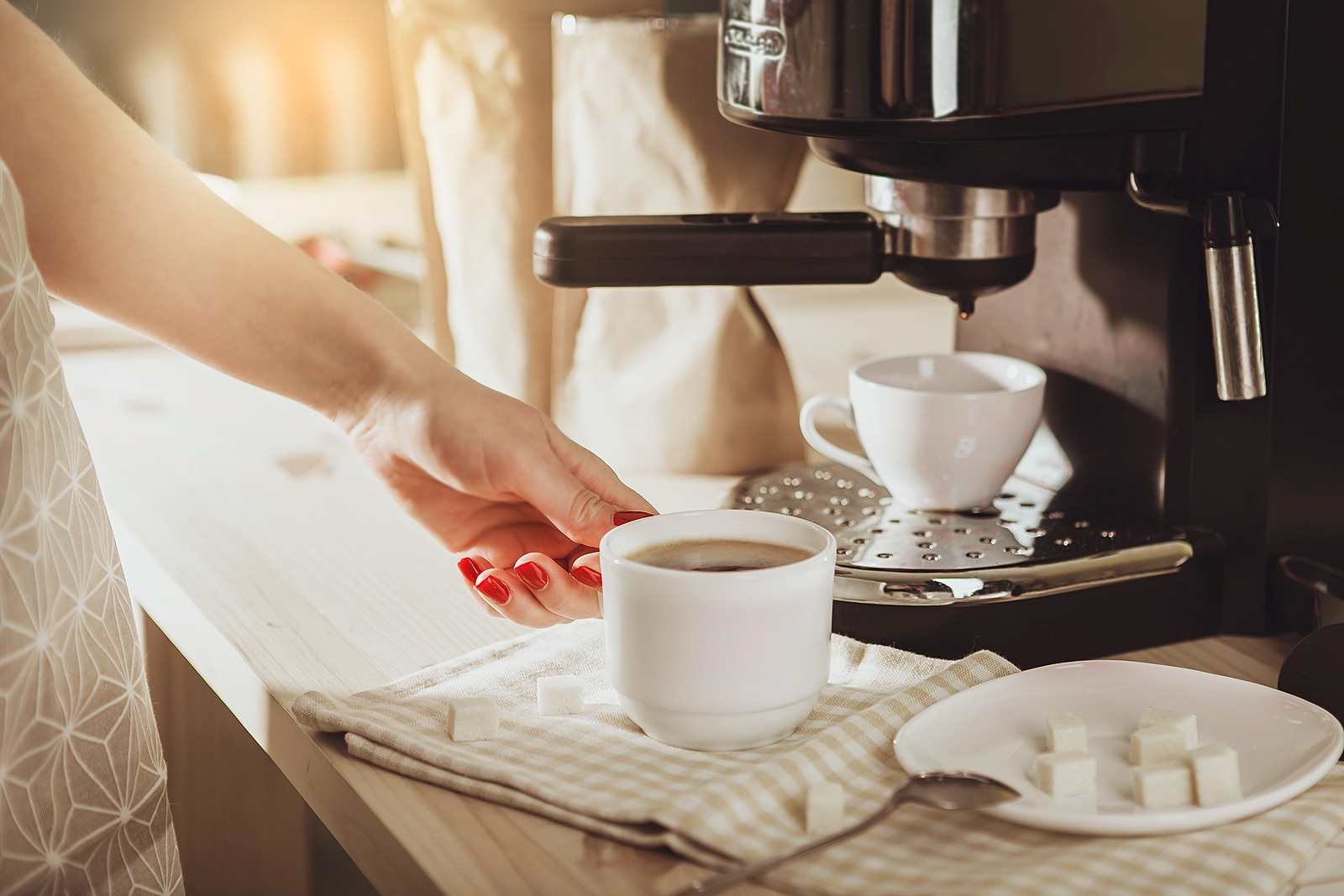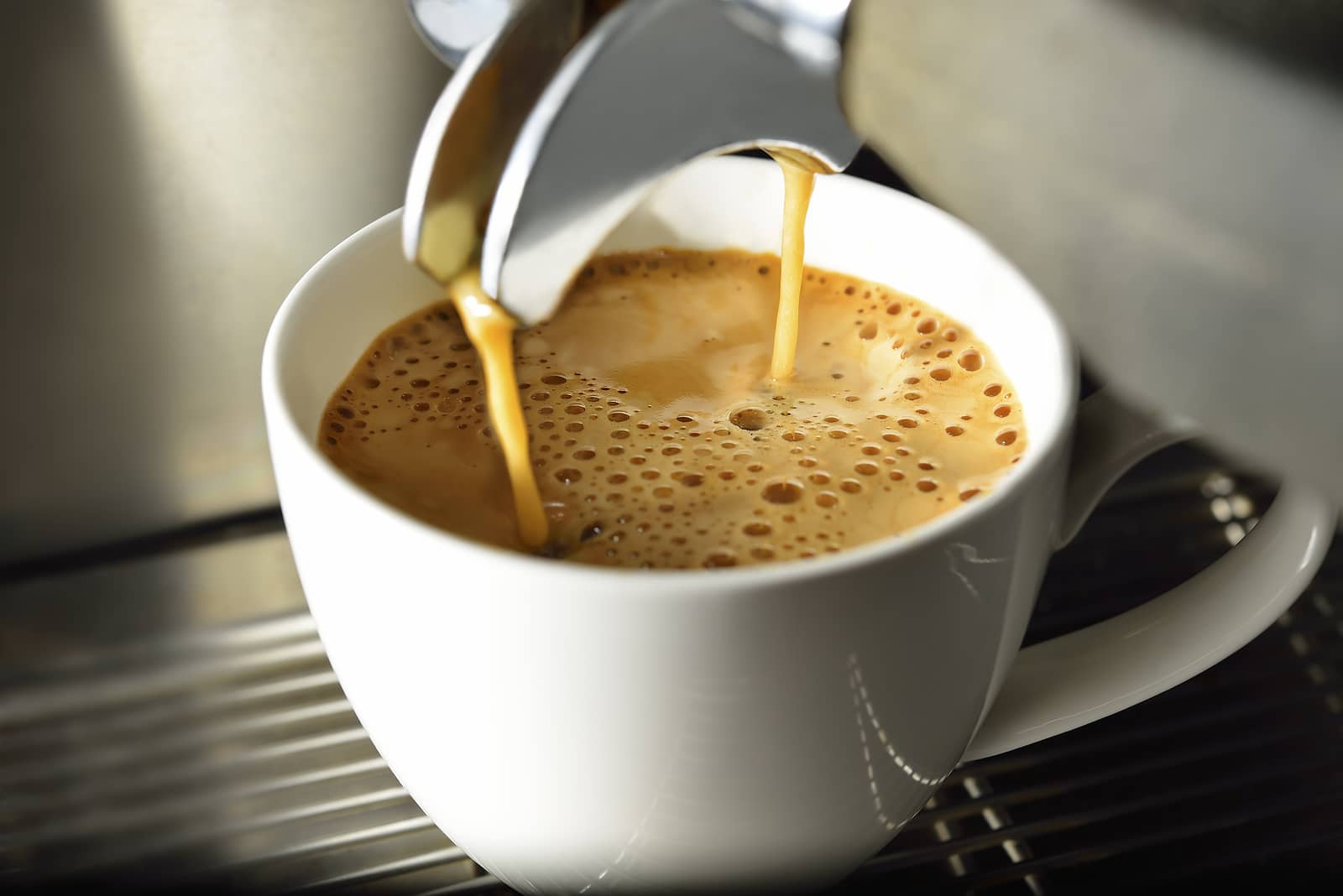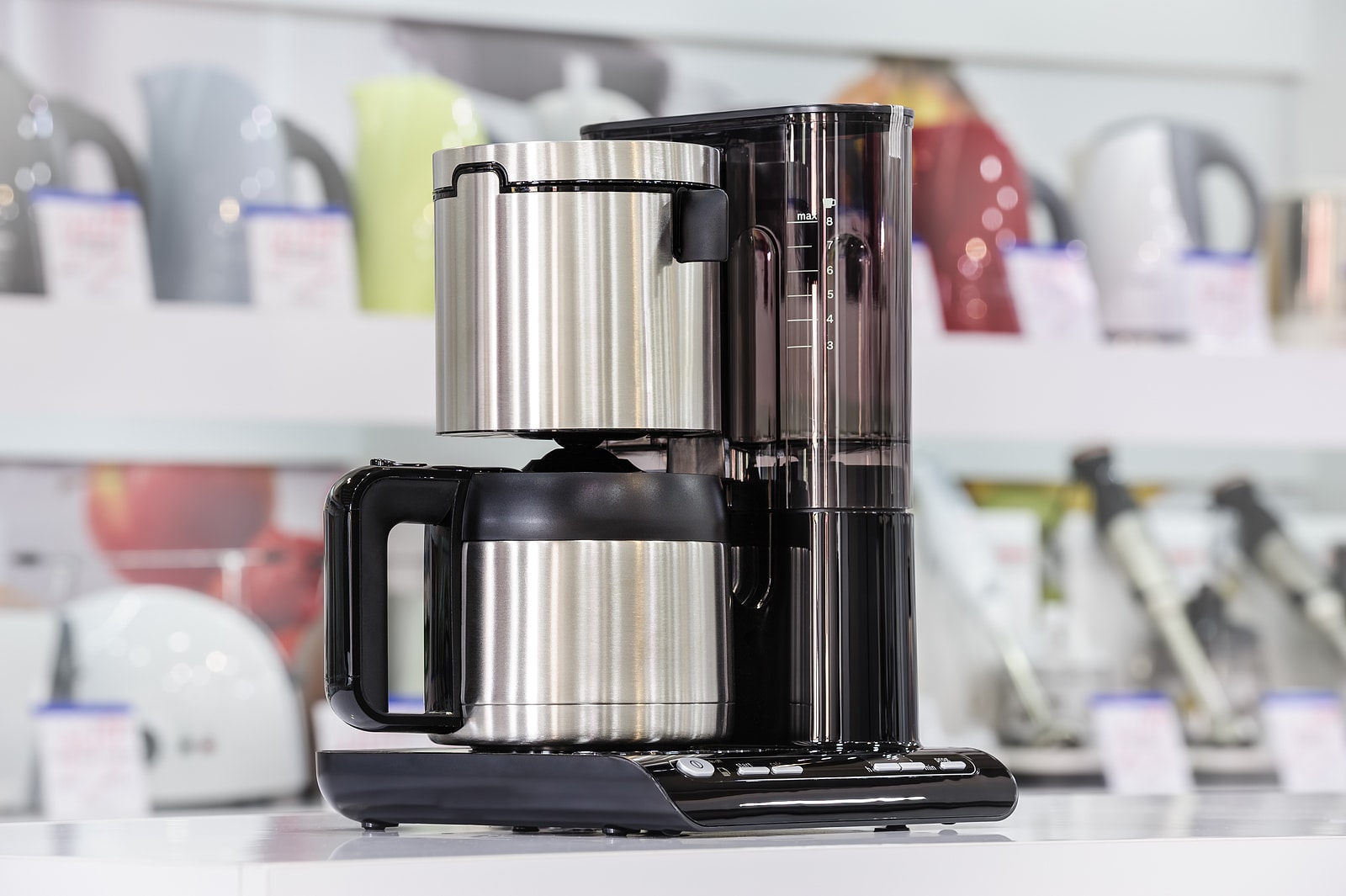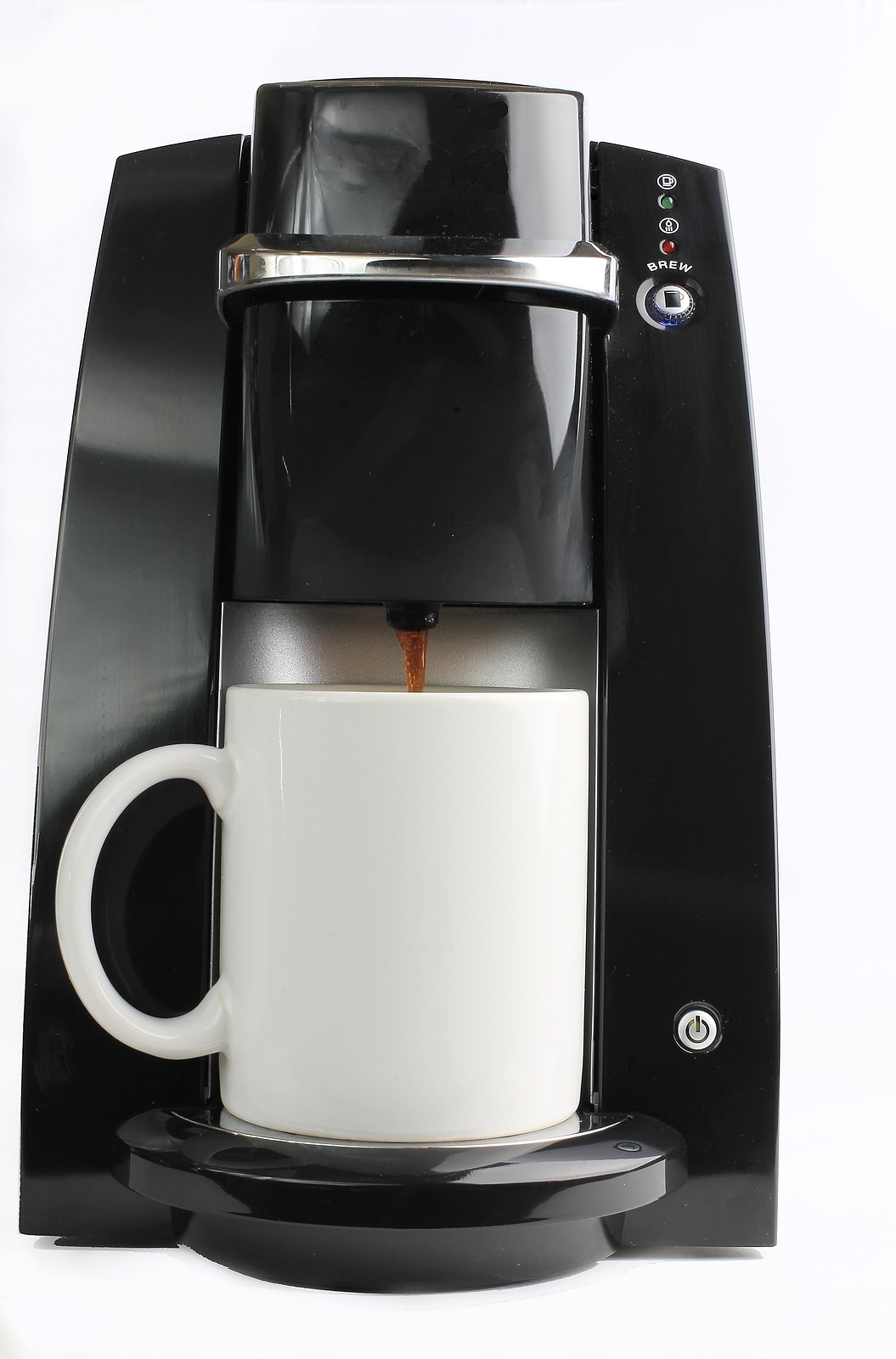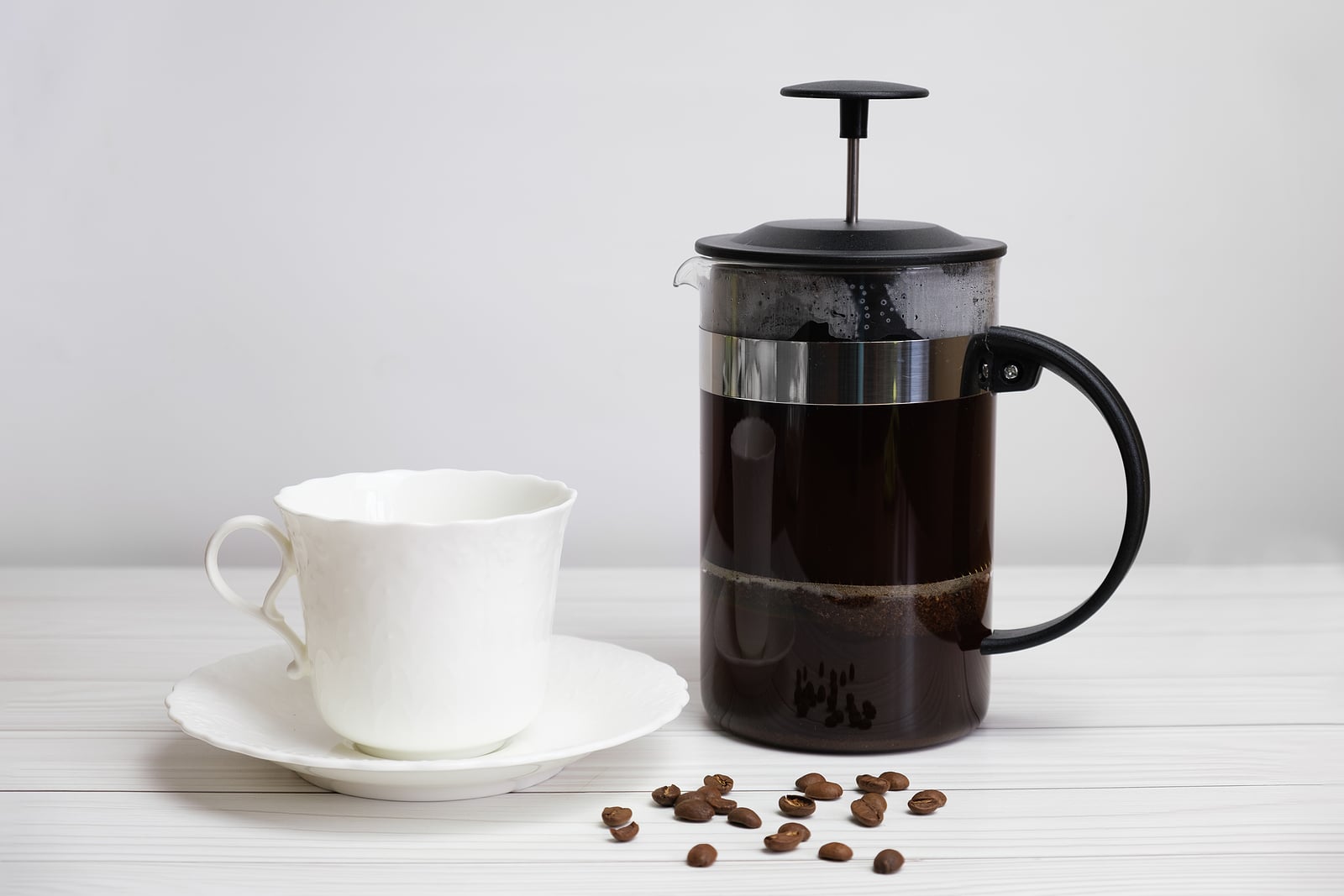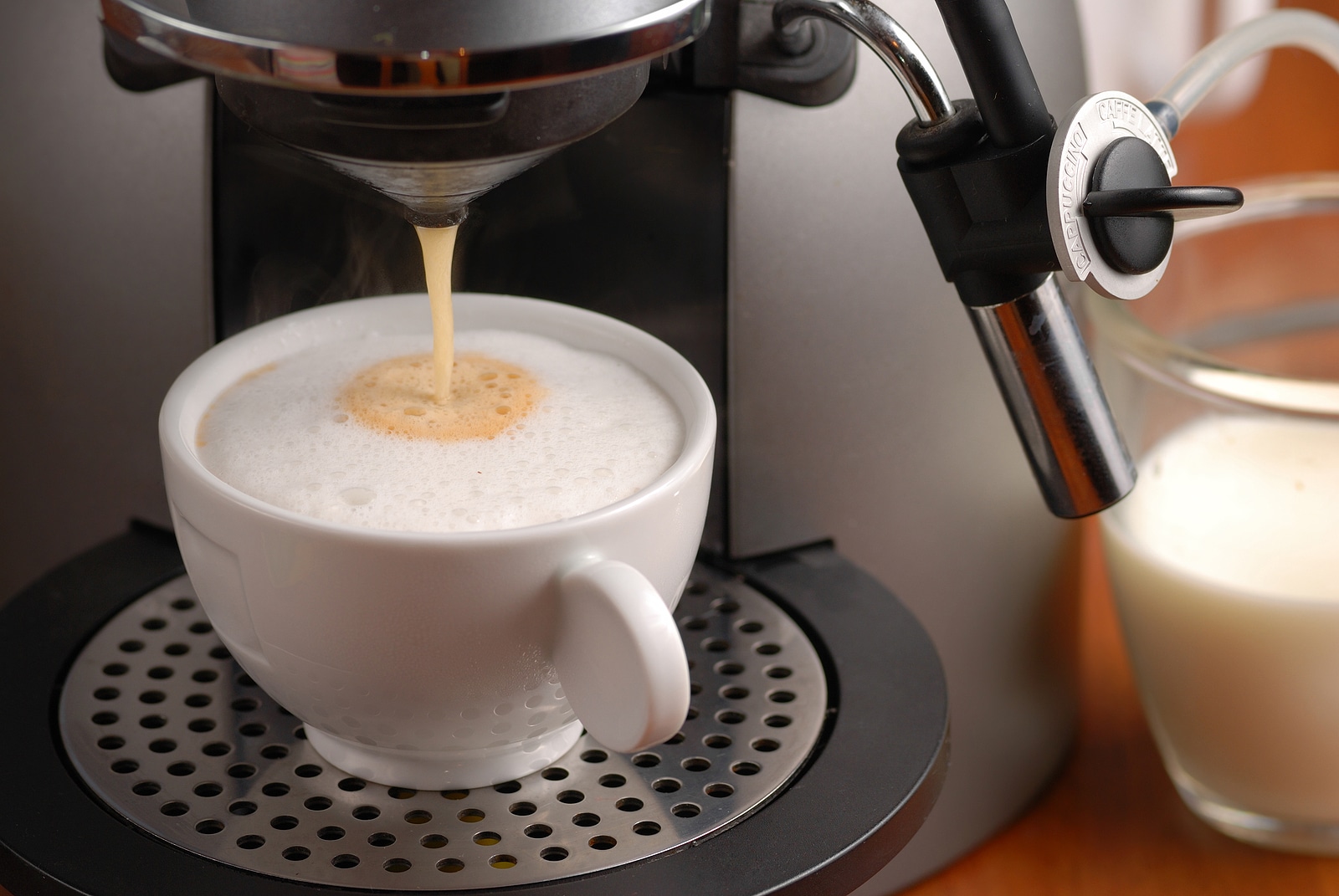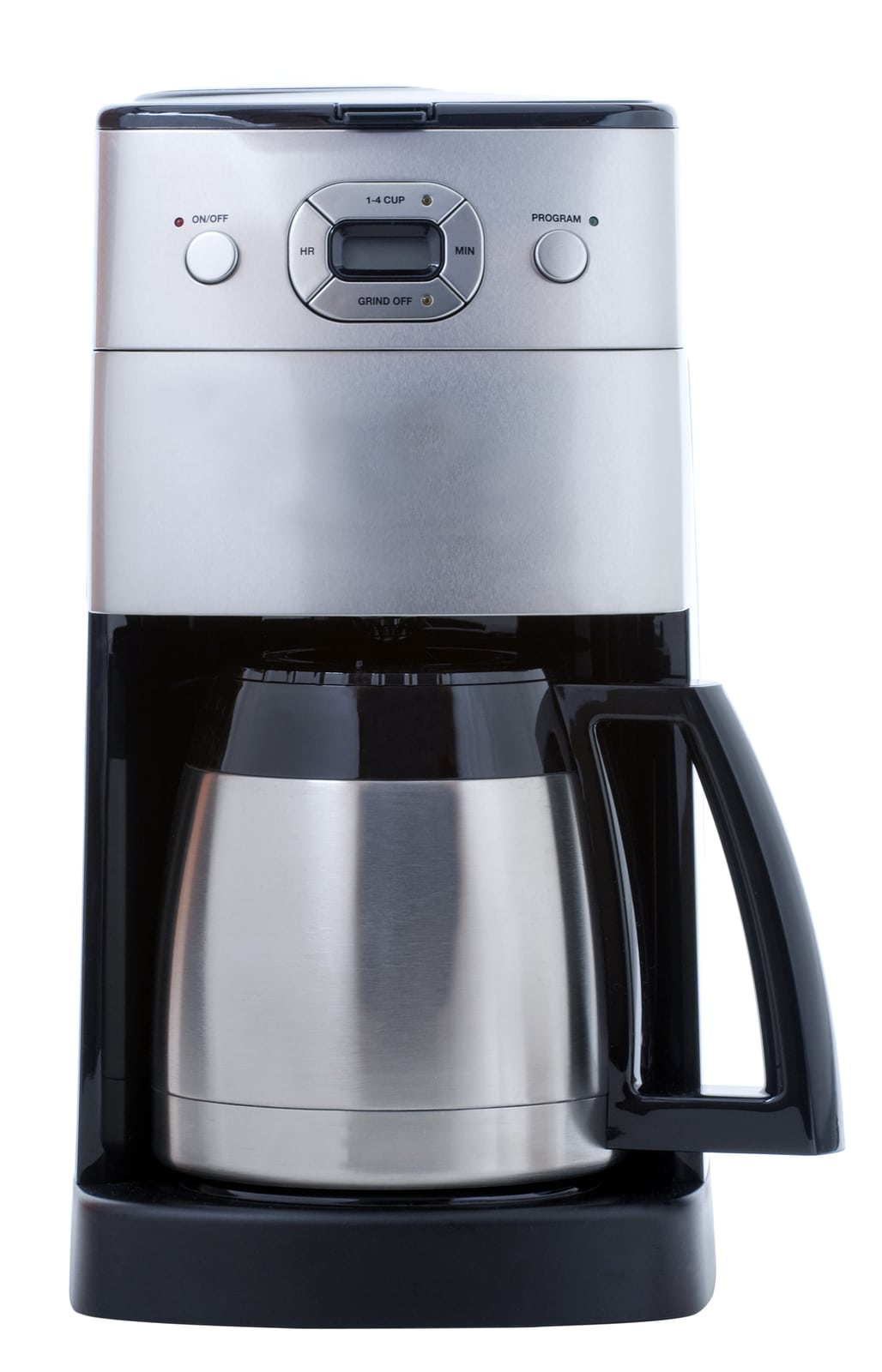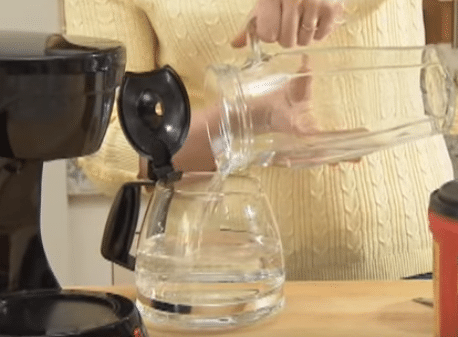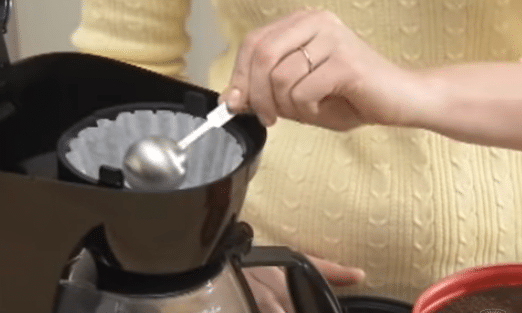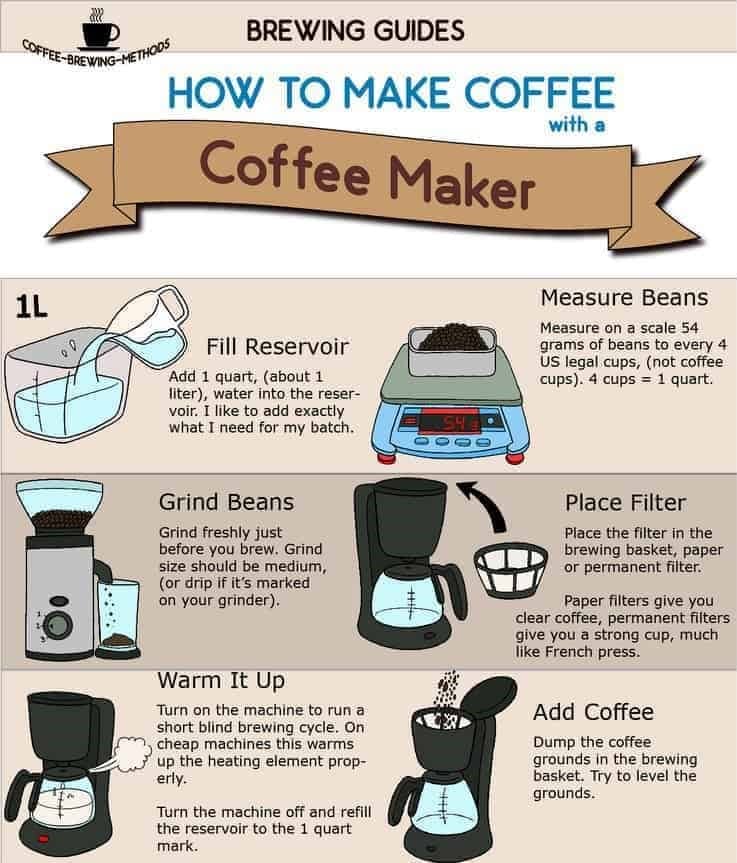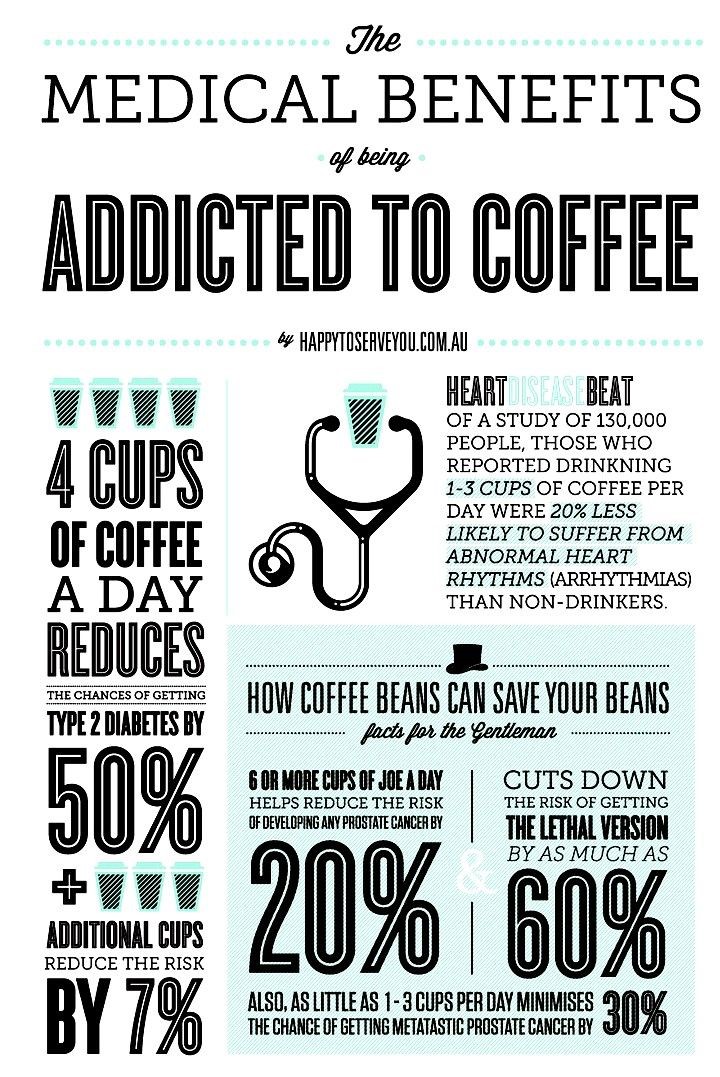A good coffee maker plays a crucial role in the daily lives of coffee enthusiasts, whether at home, in the office, or in a commercial setting. The importance of a good coffee maker extends beyond the simple act of brewing coffee; it encompasses the overall coffee-drinking experience, the quality of the brew, and the convenience it offers. Here are several key reasons why a good coffee maker is essential:
Consistent Quality: A high-quality coffee maker ensures that each cup of coffee is brewed to perfection, delivering consistent flavor, aroma, and strength. Whether it’s a rich, full-bodied espresso or a smooth, well-extracted drip coffee, a good coffee maker can maintain the desired quality with every brew. Consistency in coffee quality is essential for coffee enthusiasts who have specific preferences and expectations for their daily cup of joe.
Convenience: With the hectic pace of modern life, the convenience of having a good coffee maker cannot be overstated. It provides the ability to brew a fresh cup of coffee at any time, without the need to visit a cafe or wait in line. Whether it’s the morning rush to get ready for work or a mid-afternoon pick-me-up, a reliable coffee maker offers the convenience of having freshly brewed coffee at your fingertips.
Cost Savings: Investing in a good coffee maker can lead to significant cost savings over time, especially for those who regularly purchase coffee from cafes or coffee shops. By brewing coffee at home or in the office, individuals can save money on daily coffee expenses. Additionally, the ability to customize coffee blends and flavors according to personal preferences can lead to further cost savings and a personalized coffee experience.
Tailored Brewing Options: Different coffee makers offer various brewing methods, allowing users to tailor their coffee experience to their specific preferences. Whether it’s the bold intensity of an espresso shot, the convenience of a single-serve pod system, or the ritualistic process of using a French press, a good coffee maker provides diverse brewing options to cater to individual tastes and moods.
Enhanced Workplace Productivity: In office environments, a good coffee maker can contribute to enhanced productivity and employee satisfaction. Providing access to freshly brewed coffee can boost morale, encourage social interactions, and create a more inviting and comfortable work environment. Additionally, having a reliable coffee maker in the workplace can reduce the need for employees to leave the premises in search of coffee, saving time and increasing overall productivity.
Social Enjoyment: Coffee often serves as a social catalyst, bringing people together in a shared appreciation for the beverage. A good coffee maker facilitates the enjoyment of coffee in social settings, whether it’s hosting friends and family at home or providing coffee for gatherings and events. The ability to offer a variety of coffee options can enhance the social experience and create memorable moments around the shared love of coffee.
Key Takeaways
- Consider individual preferences and lifestyle when choosing a coffee maker
- Understand the unique features and brewing methods of different types of coffee makers
- Evaluate final factors such as brewing capacity, maintenance, and environmental impact
- The best coffee maker enhances the overall coffee-drinking experience and provides a satisfying and enjoyable cup of coffee tailored to individual tastes and needs
Importance of a good coffee maker
A good coffee maker plays a crucial role in the daily lives of coffee enthusiasts, whether at home, in the office, or in a commercial setting. The importance of a good coffee maker extends beyond the simple act of brewing coffee; it encompasses the overall coffee-drinking experience, the quality of the brew, and the convenience it offers. Here are several key reasons why a good coffee maker is essential:
Consistent Quality: A high-quality coffee maker ensures that each cup of coffee is brewed to perfection, delivering consistent flavor, aroma, and strength. Whether it’s a rich, full-bodied espresso or a smooth, well-extracted drip coffee, a good coffee maker can maintain the desired quality with every brew. Consistency in coffee quality is essential for coffee enthusiasts who have specific preferences and expectations for their daily cup of joe.
Convenience: With the hectic pace of modern life, the convenience of having a good coffee maker cannot be overstated. It provides the ability to brew a fresh cup of coffee at any time, without the need to visit a cafe or wait in line. Whether it’s the morning rush to get ready for work or a mid-afternoon pick-me-up, a reliable coffee maker offers the convenience of having freshly brewed coffee at your fingertips.
Cost Savings: Investing in a good coffee maker can lead to significant cost savings over time, especially for those who regularly purchase coffee from cafes or coffee shops. By brewing coffee at home or in the office, individuals can save money on daily coffee expenses. Additionally, the ability to customize coffee blends and flavors according to personal preferences can lead to further cost savings and a personalized coffee experience.
Tailored Brewing Options: Different coffee makers offer various brewing methods, allowing users to tailor their coffee experience to their specific preferences. Whether it’s the bold intensity of an espresso shot, the convenience of a single-serve pod system, or the ritualistic process of using a French press, a good coffee maker provides diverse brewing options to cater to individual tastes and moods.
Enhanced Workplace Productivity: In office environments, a good coffee maker can contribute to enhanced productivity and employee satisfaction. Providing access to freshly brewed coffee can boost morale, encourage social interactions, and create a more inviting and comfortable work environment. Additionally, having a reliable coffee maker in the workplace can reduce the need for employees to leave the premises in search of coffee, saving time and increasing overall productivity.
Social Enjoyment: Coffee often serves as a social catalyst, bringing people together in a shared appreciation for the beverage. A good coffee maker facilitates the enjoyment of coffee in social settings, whether it’s hosting friends and family at home or providing coffee for gatherings and events. The ability to offer a variety of coffee options can enhance the social experience and create memorable moments around the shared love of coffee.
Factors to consider when choosing a coffee maker
When choosing a coffee maker, several important factors should be taken into consideration to ensure that the selected machine aligns with individual preferences, lifestyle, and brewing needs. The wide variety of coffee makers available in the market, each offering distinct features and brewing methods, necessitates a thoughtful approach to decision-making. The following factors play a crucial role in determining the most suitable coffee maker for an individual or a specific setting:
Type of Coffee Desired: One of the primary considerations when choosing a coffee maker is the type of coffee that one prefers. Different coffee makers are designed to brew specific types of coffee, such as drip coffee, espresso, single-serve pods, French press, pour-over, or cold brew. Understanding personal coffee preferences and the desired brewing method is essential in selecting the most appropriate coffee maker.
Brewing Capacity and Speed: The brewing capacity and speed of a coffee maker are important factors, especially in settings where multiple servings of coffee are required or in environments with time constraints. Some coffee makers are designed for single servings, while others can brew multiple cups at once. Additionally, the brewing time varies among different machines, with some offering rapid brewing for on-the-go convenience.
Available Space and Design Preferences: The physical dimensions of the coffee maker and its design are crucial factors, particularly for home use. Consideration should be given to the available counter space and the overall aesthetic of the kitchen or any other setting where the coffee maker will be placed. Compact, space-saving designs or aesthetically pleasing models may be preferred based on individual needs and preferences.
Budget and Long-Term Maintenance Costs: The initial cost of the coffee maker, as well as the long-term maintenance expenses, should be factored into the decision-making process. Some coffee makers may have a higher upfront cost but lower ongoing maintenance expenses, while others may be more affordable initially but incur higher operational costs over time. Understanding the total cost of ownership is essential in making an informed decision.
Desired Features: Different coffee makers offer a range of features that cater to specific preferences and convenience. Programmability, temperature control, brewing strength options, automatic shut-off, and integrated grinders are among the features that may be desired. Understanding which features are essential and which are optional can help narrow down the choices.
Ease of Cleaning and Maintenance: The ease of cleaning and maintaining a coffee maker is an important consideration for ensuring longevity and optimal performance. Removable parts, dishwasher-safe components, and descaling requirements should be evaluated, especially for those with busy schedules or a preference for low-maintenance appliances.
By carefully considering these factors, individuals can make informed decisions when choosing a coffee maker that best suits their preferences, lifestyle, and brewing needs. Whether it’s for personal use at home, in an office setting, or for commercial purposes, understanding these factors can lead to the selection of a coffee maker that enhances the overall coffee experience and meets specific requirements.
Drip Coffee Makers
Drip coffee makers, also known as filter coffee machines, are among the most popular and widely used coffee brewing appliances. They are valued for their convenience, ease of use, and ability to brew multiple cups of coffee at once. Understanding the features, pros, and cons of drip coffee makers is essential for anyone considering this type of coffee maker.
Description and Features: Drip coffee makers operate by heating water and dripping it over ground coffee contained within a filter. The brewed coffee then drips into a carafe or pot below. These machines typically feature a water reservoir, a heating element, a showerhead for even water distribution, and a warming plate to keep the brewed coffee hot. Many modern drip coffee makers also offer programmable settings, adjustable brewing strength, and automatic shut-off features for added convenience.
Top Brands and Models: Several reputable brands offer a wide range of drip coffee makers, catering to various preferences and budgets. Brands such as Cuisinart, Breville, Technivorm, Bonavita, and Hamilton Beach are known for producing high-quality drip coffee makers. Models like the Cuisinart DCC-3200, Breville BDC450, Technivorm Moccamaster, Bonavita Connoisseur, and Hamilton Beach 2-Way FlexBrew are popular choices known for their reliability and performance.
Pros and Cons:
| Pros | Cons |
|---|---|
| Convenience: Drip coffee makers are known for their ease of use and convenience. They are suitable for both home and office settings, providing a straightforward and efficient way to brew multiple cups of coffee at once. | Lack of Control: Some drip coffee makers may offer limited control over brewing parameters such as water temperature and extraction time, which can impact the overall flavor and quality of the brewed coffee. |
| Large Capacity: Many drip coffee makers have a generous brewing capacity, making them ideal for serving multiple people or for preparing a large quantity of coffee to be consumed throughout the day. | Potential for Uneven Extraction: Without proper technique and equipment, drip coffee makers may result in uneven extraction, leading to a less balanced and flavorful cup of coffee. |
| Programmable Options: Modern drip coffee makers often feature programmable settings, allowing users to set a specific brew time, adjust brewing strength, and even have coffee ready as soon as they wake up in the morning. | Warming Plate Impact: The warming plate that keeps the brewed coffee hot can sometimes lead to overcooked or burnt flavors if the coffee is left on the plate for an extended period. |
Single Serve Coffee Makers
Single-serve coffee makers, also known as pod coffee makers, have gained popularity for their convenience, speed, and ability to produce a single cup of coffee at a time. These machines use pre-packaged coffee pods or capsules to brew a single serving of coffee, offering simplicity and variety to coffee enthusiasts. Understanding the features, pros, and cons of single-serve coffee makers is essential for those considering this type of coffee maker.
Description and Features
Single-serve coffee makers are designed to brew a single cup of coffee using pre-portioned coffee pods or capsules. The user simply inserts the pod into the machine, selects the desired cup size, and initiates the brewing process. These machines typically feature a water reservoir, a pod holder or chamber, and a brew head that punctures the pod to initiate the brewing cycle. Many single-serve coffee makers offer programmable options, adjustable cup sizes, and the ability to brew other beverages such as tea and hot chocolate.
Top Brands and Models
Several prominent brands offer a wide range of single-serve coffee makers, each with its own set of features and brewing technology. Brands such as Keurig, Nespresso, Breville, and Cuisinart are known for producing high-quality single-serve coffee makers. Models like the Keurig K-Elite, Nespresso VertuoPlus, Breville Nespresso Creatista, and Cuisinart SS-10 are popular choices known for their reliability and performance.
Pros and Cons:
| Pros | Cons |
|---|---|
| Convenience: Single-serve coffee makers excel in terms of convenience, offering a quick and hassle-free way to brew a single cup of coffee at the touch of a button. This is particularly advantageous for individuals with busy schedules or those who prefer a fresh cup of coffee on demand. | Environmental Impact: The use of single-serve pods can contribute to environmental waste, as many pods are made from non-recyclable or non-biodegradable materials. This has raised concerns about the ecological footprint of single-serve coffee makers. |
| Variety of Flavors: One of the key advantages of single-serve coffee makers is the wide variety of coffee flavors and blends available in pod form. Users can easily switch between different types of coffee, including specialty blends, without the need to purchase separate bags of coffee beans or grounds. | Cost of Pods: The ongoing cost of purchasing single-serve coffee pods can be higher compared to buying traditional coffee beans or grounds in bulk. This cost factor should be considered, especially for those who consume multiple cups of coffee daily. |
| Minimal Cleanup: Single-serve coffee makers typically involve minimal cleanup, as the used pods can be easily disposed of without the need for additional maintenance or cleaning of filters and brewing components. | Limited Customization: Single-serve coffee makers may offer limited customization options in terms of brewing parameters such as water temperature, brew strength, and coffee grind size, which can affect the overall brewing experience for some users. |
French Press
French press, also known as a press pot or plunger pot, is a classic and popular method of brewing coffee that allows for full immersion and extraction of coffee grounds. This method is valued for its simplicity, ability to preserve the natural oils and flavors of the coffee, and the control it offers over the brewing process. Understanding the features, pros, and cons of French press coffee makers is essential for those considering this traditional brewing method.
Description and Features
A French press consists of a cylindrical glass or stainless steel container with a plunger and a built-in filter. Coarsely ground coffee is steeped in hot water, and after a few minutes, the plunger is pressed down to separate the grounds from the brewed coffee. French press coffee makers are known for their straightforward design and minimal components, making them easy to use and maintain. They do not require electricity, making them suitable for use in various settings, including outdoor activities and travel.
Top Brands and Models
French press coffee makers are offered by various brands, with models available in different sizes and materials. Brands such as Bodum, Frieling, Espro, and SterlingPro are known for producing high-quality French press coffee makers. Models like the Bodum Chambord, Frieling Double Wall Stainless Steel French Press, Espro P7, and SterlingPro Double Wall Stainless Steel French Press are popular choices known for their reliability and performance.
Pros and Cons
| Pros | Cons |
|---|---|
| Full Flavor Extraction: French press coffee makers allow for full immersion and extraction of coffee grounds, resulting in a rich and robust flavor profile. The natural oils and fine particles of the coffee are retained, enhancing the overall taste and aroma of the brewed coffee. | Sediment in the Brew: French press coffee may contain sediment or fine particles due to the lack of a paper filter, which can affect the texture and clarity of the brewed coffee. Some individuals may find the presence of sediment undesirable. |
| Control Over Brewing Parameters: Users have complete control over the brewing process, including water temperature, steeping time, and the intensity of the plunge, allowing for customization and experimentation to achieve the desired strength and flavor of the coffee. | Manual Operation: The brewing process with a French press is entirely manual, requiring attention to brewing time, water temperature, and the plunging technique. This may not be suitable for those seeking a more automated or hands-off brewing experience. |
| Portability and Durability: French press coffee makers are portable, durable, and suitable for various environments, making them ideal for camping, travel, and outdoor activities. They are also easy to clean and maintain, requiring minimal upkeep. | Heat Retention: French press coffee makers may not retain heat as effectively as insulated coffee makers, potentially leading to a quicker drop in temperature after brewing. |
Conclusion
Choosing the right coffee maker is a decision that should be guided by individual preferences, brewing needs, and lifestyle. Whether it’s the convenience of a drip coffee maker, the versatility of an espresso machine, the variety offered by single-serve coffee makers, or the traditional approach of a French press, each type of coffee maker has its unique advantages and considerations. By carefully evaluating the features, pros, and cons of different coffee makers and considering final factors such as brewing capacity, maintenance, and environmental impact, individuals can make an informed choice that aligns with their coffee brewing preferences. Ultimately, the best coffee maker is one that enhances the overall coffee-drinking experience, providing a satisfying and enjoyable cup of coffee tailored to individual tastes.
Frequently Asked Questions
What are the different types of coffee makers available?
Different types of coffee makers available include drip coffee makers, espresso machines, single-serve coffee makers, French presses, pour-over coffee makers, and cold brew coffee makers.
How do I choose the right coffee maker for my needs?
To choose the right coffee maker for your needs, consider factors such as the type of coffee you prefer, the number of people you’ll be serving, the available space in your kitchen, and your budget.
What features should I look for in a high-quality coffee maker?
When looking for a high-quality coffee maker, consider features such as brewing temperature control, programmable settings, ease of cleaning, durability, and the availability of replacement parts.
What are the pros and cons of drip coffee makers?
Pros of drip coffee makers include convenience, large capacity, and programmable options. Cons may include the potential for uneven extraction and a lack of control over brewing parameters.
How do espresso machines work, and what makes them different from other coffee makers?
Espresso machines work by forcing pressurized hot water through finely-ground coffee, resulting in a concentrated and flavorful shot of espresso. They are different from other coffee makers in their ability to produce a strong, rich coffee with a layer of crema on top.
Are single-serve coffee makers worth the investment?
Single-serve coffee makers can be worth the investment for those who value convenience, variety, and minimal cleanup. However, the ongoing cost of single-serve pods and the environmental impact of disposable pods are important considerations.
What is the best way to use a French press coffee maker?
The best way to use a French press coffee maker involves using coarse coffee grounds, adding hot water, allowing it to steep, and then pressing the plunger down slowly to separate the grounds from the brewed coffee.
How do I clean and maintain my coffee maker for optimal performance?
To clean and maintain your coffee maker, regularly descale it to remove mineral deposits, clean removable parts with warm soapy water, and follow the manufacturer’s instructions for maintenance.
What are some popular coffee maker brands known for their reliability and performance?
Popular coffee maker brands known for reliability and performance include Breville, Keurig, Cuisinart, Nespresso, Technivorm, Chemex, and Bodum.
Can I make other beverages besides coffee with certain types of coffee makers?
Certain types of coffee makers, such as espresso machines and some drip coffee makers, can be used to make beverages like lattes, cappuccinos, and hot chocolate by using different settings and accessories.
The Coffee Maker
Just about every home needs a coffee maker. After all, aside from water, java is our favorite drink, with the average American downing 3.2 cups a day. While many of us are looking for a better-tasting cup and indulging in espresso and cold brew, some coffee drinkers still just want that morning fix fast. Regardless of your preferences, there’s a coffee maker out there to suit your needs and your budget.
Source
How to Make Coffee in a Coffee Maker
Learn how to make coffee using a standard coffee maker
Coffee Maker Top Picks
The best coffee maker: Bonavita Connoisseur
*Bonavita’s Connoisseur is easy to use, small, and brews a killer cup of coffee.The best programmable coffee maker: Cuisinart DCC-3200
*The large carafe, brew pause feature, and auto-shut off function make the Cuisinart DCC-3200 ideal for households with busy mornings.The best coffee pot: Mr. Coffee Optimal Brew
*The Mr. Coffee Optimal Brew packs plenty of high-end features into an economical package.The best single-cup coffee maker: Keurig K475
*You can brew a cup or a carafe in the Keurig K475.The best combo coffee/espresso Machine: DeLonghi BC0430
Source
*This is really two machines in one: a drip coffee maker and an espresso machine.
How To Make Coffee With A Drip Coffee Maker
This brief guide is meant to start you in the right direction. Great coffee though, needs a little more attention and it’s almost a science.
Source
The Medical Benefits of Being Addicted to Coffee
Here is a very cute coffee info graphic to show the medical benefits of being addicted to coffee.
Source


